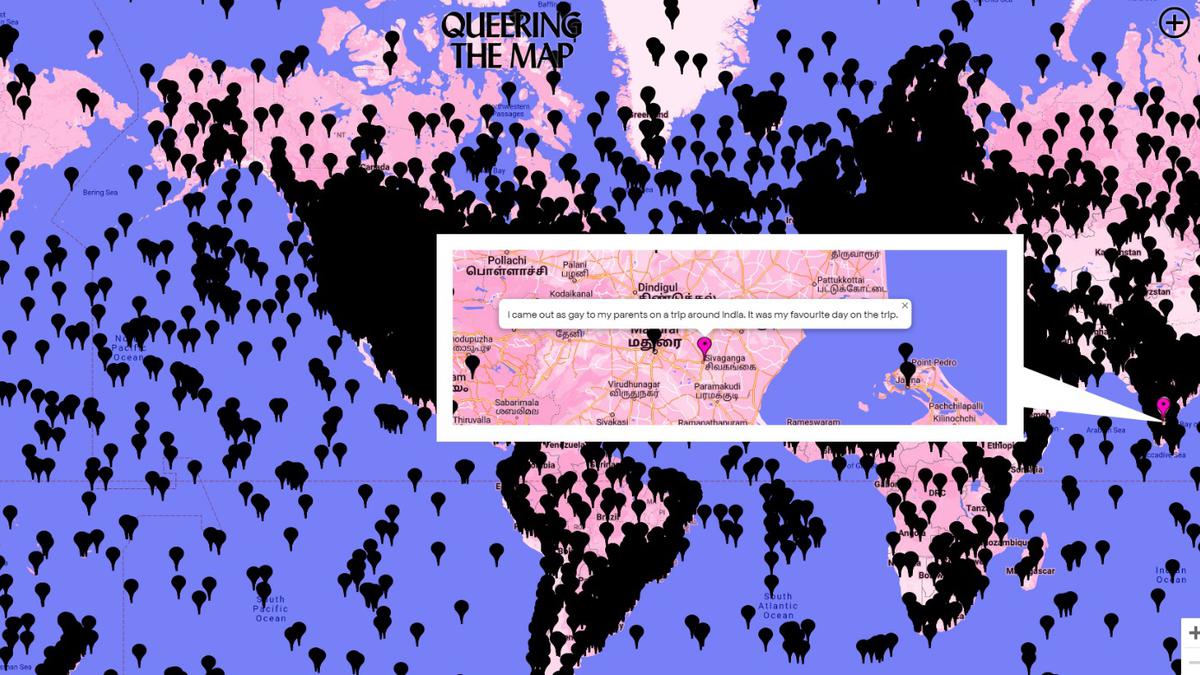
Pride month 2023 | This website celebrates queer memories from across the world
The Hindu
Lucas LaRochelle, the founder of Queering The Map, says that there has been a stark rise in the number of Desi queer stories on their site, a spot on the internet that helps the LGBTQIA+ community find solidarity through anonymous, heartening anecdotes.
There is a pin on Palestine’s Gaza strip that Lucas LaRochelle (they/them), the founder of the website Queering The Map, regularly goes back to.
It reads: “I’ve always imagined you and me sitting out in the sun, hand and hand , free at last. We spoke of all the places we would go if we could. Yet you are gone now. If I had known that bombs raining down on us would take you from me, I would have gladly told the world how I adored you more than anything. I’m sorry I was a coward (sic).”
This is only one of half a million heartening stories on Lucas’ Queering The Map. A simple swipe through this interactive website painted in pink, shows queer persons recounting memories of love, lust, and loathing, from all seven continents.
Lucas who began working on the website six years ago when they were 21, says that they are full of gratitude because of the response. This web designer and media artist would regularly pass by a tree in Montreal, Canada. It is where they fell in love with their partner, an instrumental part of them discovering and coming out as trans non-binary. This was only one of the several such spaces that Lucas found important in their pursuit. However, they were all not conventionally considered places inhabited by members of the LGBTQIA+ community exclusively.
It hence motived them to ask some important questions. “What would it feel like to move through a world animated by queer and trans pasts and presents, and how might that inform the kinds of futures we can imagine for ourselves and our communities?”
Queering The Map was born and shared within a small circle in the beginning. Very quickly though, it gained several thousand pins and became popular on social media platforms like Instagram and Twitter.
“I got bored thinking about my own queer and trans experiences, and was cognisant of how they were framed through being a white, western, middle-class, university-educated person. I became interested in building an infrastructure for publishing and circulating queer and trans stories from broader geographies and subject positions” they say.

West Bengal government and Centre are not keen for resumption of MGNREGA, despite Calcuttal HC order
Calcutta High Court orders resumption of MGNREGA in West Bengal, but state and Centre show reluctance, impacting workers.





















 Run 3 Space | Play Space Running Game
Run 3 Space | Play Space Running Game Traffic Jam 3D | Online Racing Game
Traffic Jam 3D | Online Racing Game Duck Hunt | Play Old Classic Game
Duck Hunt | Play Old Classic Game










